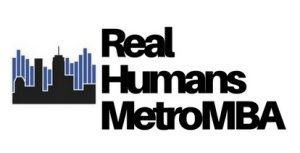Search results for return on investment:
6 Reasons to Consider an MBA
Our friends from Access MBA outline 6 reasons why you should consider an MBA. Read on for their insights as well as their upcoming events near you.
Continue reading…
The Top 5 MBA Grad Salaries in Pennsylvania
Where should you earn your MBA in Pennsylvania if you want to walk away with a high salary upon graduation? We’re breaking down the top five MBA programs for high salaries in Pennsylvania: Wharton, Tepper, Smeal, Katz, and LeBow.
Continue reading…
Weekend MBA
Purdue University Weekend MBA Program Structure
Like the full-time MBA, the part-time Weekend MBA program at the Purdue University Krannert School of Management is 21 months. However, students are offered a more flexible schedule, meeting two Saturdays per month from 8 a.m. to 5 p.m., with other courses offered online. The program features 48 total credits worth of courses and begins annually in August.
Curriculum
The Weekend MBA spans five separate semesters, including a summer semester in the first year. The fall I, fall II, and spring I semesters features twelve total credits worth of courses, with eight credits for the spring II semester. Only four credits worth of courses are completed during the aforementioned summer semester.
Part-Time MBA Rankings
• U.S. News & World Report: Top Producer of Fortune 500 CEOs
• Bloomberg Businessweek: #3 MBA Return on Investment
• Wall Street Journal: #9 MBA in the World
• The Financial Times: #16 MBA at a U.S. Public Institution
Class Profile
The average age of the most recent class was 33-years old. The most recent Purdue Weekend MBA class consisted of 38 percent female students and 62 percent male students. The average work experience of the class was around eight years.
Tuition, Scholarships, and Financial Aid
Tuition cost for Indiana residents is roughly $50,984 for the Purdue Weekend MBA at the Krannert School of Management, with in-state-students paying around $59,984.
Limited scholarship opportunities are available for Weekend MBA students. Federal and private financial aid may be available to U.S. students, with international students mostly needing to rely on private financial aid.
Admissions
Applicants to the Weekend MBA program are expected to have at least three years of work experience prior to enrollment. Those that have at least three years of work experience and a GPA of 3.0 or more are eligible for a GMAT/GRE waiver. Those who do not fit these requirements are expected to submit GMAT scores of at least 500.
In addition to an online application, applicants are also expected to submit:
• Official transcripts
• Two mandatory essays and one optional essay
• Two online letters of recommendation
• A video essay responding to three-to-five questions
• Proof of English proficiency (if necessary)
• $75 application fee (waived for U.S. students and legal residents)
• GMAT/GRE Scores (if applicable)
Applicants may request a GMAT waiver if they meet the following criteria: 3+ years of credible work experience & 3.0 average undergrad GPA.
Purdue Weekend MBA Fall 2021 Start Date Deadlines:
Start Date
- Fall 2022: August 13, 2022
Application Deadlines
We offer a rolling admissions process, with your application deadlines as follows:
| Application | Deadline |
|---|---|
| Priority | January 15 |
| Final International | March 1 |
| Final Domestic & Internationals currently living in the U.S. | June 1 |
Michigan Ross and Michigan State Broad: Which MBA is Right for You?
As you search for the best fit in an MBA program, the country’s big metropolitan areas are likely on your list. It’s clear that New York, Chicago, Los Angeles, San Francisco, Boston and Philly have no shortage of renowned business schools and robust job markets.
School vs. School: FSU vs Miami
Florida’s reputation as a sunburnt smorgasbord of vacationers, beach bodies, and retirees belies the ethnic, cultural, political, and geographic diversity within and between the state’s various regions. Simply put, there are many distinctions to be made from place to place and Florida’s institutions of higher learning are no exception. For aspiring business leaders, the choice of where to matriculate is a major factor to consider when deciding on a school.
Case in point: FSU vs Miami—two business schools at nearly opposite ends of the Sunshine State.
School vs. School: Florida Hough vs. FSU College of Business
In the Sunshine State, the MBA continues to flourish. Yet, even among the state’s ever-expanding number of AACSB-accredited business schools, two giants stand out: The University of Florida and Florida State University. And while the MBA rivalry may not be as stoic as its football rivalry, there is a lot to consider before potentially enrolling in either school.
Below, we break down Florida vs FSU and what you need to know about the business schools.
Where Should You Go? The Benefits of a Mid-Tier MBA
You have an MBA acceptance letter from both Harvard Business School and Cornell SC Johnson. Which do you choose?
Your gut reaction might be to choose Harvard’s top-ranked MBA program without a second’s pause. After all, aren’t business school rankings—like those compiled by the Financial Times and U.S. News & World Report—the most important consideration when choosing your MBA program?
In some cases, you might be right. If you’re most interested in reputation, then ranking is all important. However, there are many times when rankings should be taken with a grain of salt. They tell a story, but not the whole story, especially when it comes to you as an individual candidate.
Just because a specific school is top-ranked, does not mean it should be the top rank for you. Many mid-level MBA programs are just as impressive and could be a better fit for you depending on your needs.
In this article, we’ll take an in-depth look at when and why you should choose a mid-ranked MBA program over a top-ranked program. Continue reading…
The Affordable Healthcare MBA Guide

For MBA hopefuls and graduates, careers in finance or consulting are not the only options.
As the healthcare industry continues to evolve, so do its business needs. For those with savvy business acumen and enough experience to handle a changing landscape, an MBA can help lay the foundation for a long, rewarding career in healthcare.
But, like many graduate degrees, cost is a major factor. Here's what you need to know when looking for an affordable healthcare MBA degree:
Where to Start?
Business schools in and outside of the United States continue to incorporate healthcare education into the MBA curriculum. However, not every school offers specified healthcare management education just yet.
The most traditional and readily available option is a dual degree, combing an MBA with a Medicinae Doctor (Doctor of Medicine) degree, or, MD. Most well-established institutions, such as the Harvard Business School, offer these kinds of dual degree options, which combine the rigorous training of an MBA with specific medical expertise from the university's affiliate medical school. However, as one may assume, earning a dual degree can take much longer than a specific healthcare MBA degree, and also become significantly more costly.
For those wary about the time it takes to earn the degree and the cost associated with taking on two separate graduate school course loads, the optimal option may be to go after specified healthcare MBA programs.
An Affordable Healthcare MBA Degree
To start, we'll look at some of our favorite specialized healthcare MBAs, which help mitigate time and cost, and provide a better return on investment.
Questrom School of Business - Boston University
Boston University's Questrom School of Business Health Sector full-time MBA (HSN) program shares a similar curriculum to the school's highly-ranked full-time MBA (50th in the U.S., according to U.S. News & World Report), combined with specific healthcare-centric electives. According to the school, this program provides experience and education regarding "basic elements of insurance and payment, service delivery, and life sciences products will be described, and put in the context of the unique economic structure of the sector."
The degree does not limit itself, however. Students can combine a Healthcare Sector MBA degree with an MD or a Master of Public Health (MPH) through the university's School of Public Health. Alone, tuition for the Health Sector full-time MBA degree is currently $55,480 annually. Combined with the cost of fees, room and board, and more, and the annual total comes to $76,550.
University of Colorado – Denver Business School
The University of Colorado Denver Business School is one of the few schools in the U.S. that offers two MBA programs that specialize in healthcare management: the Health Administration MBA; and the Executive MBA in Healthcare Administration.
The Health Administation MBA can take as little as two years or as long as five years, make it among the more flexible MBA offerings available. In addition, class are also available online, making it one of the more high-rated and affordable online MBA programs in the U.S. For in-state residents, tuition for the 48-credit program is just $30,048 ($626 per credit). Out-of-state residents pay $66,144 ($1,378 per credit) for either the full-time or part-time track. However, if classes are taken online, the tuition cost for out-of-state students drops to $35,088. As a bonus, there is no specified work requirement needed in order to enroll, and a GMAT waiver is available for select students.
The Denver Business School Executive MBA in Healthcare Administration is designed similarly to the standard Health Administration MBA. However, it only takes two years to complete and is built strictly for applicants that already have at least five years of previous professional health care experience. The total cost is a flat rate for students, regardless of residence, at $59,000 for the entire program.
Carlson School of Management – University of Minnesota
The University of Minnesota Carlson School of Management part-time MBA program concentration options set itself apart. The part-time MBA program at the school's Twin Cities campus offers students a Medical Industry Specialization offering, according to the school, "a specialized curriculum, access to a thriving community of medical industry employers, and opportunities to partner with the full spectrum of health care service providers, from device manufacturers to hospitals and everything in between, to solve emerging healthcare challenges."
This program, formally called the Medical Industry MBA, allows students to connect with well-established medical facilities, including the nearby Mayo Clinic. Students in the program also undergo the Medical Industry Valuation Laboratory, a graduate elective that offers first-hand experience is the evolving world of medical technology. The program itself is often recognized as one of the best in the world, currently ranked as the second best in the entire U.S. by U.S. News & World Report.
Tution can vary for in and out-of-state students. Currently, students, regardless of their state of residence, pay $1,535 per credit. However, if out-of-state students take more than 11 credits worth of courses per semester, the cost of each successive credit is $1,963.
Other Healthcare MBA Options
The WhartonSchool – The University of Pennsylvania
If price is not as much of an issue, or if one is lucky enough to have their education provided for by scholarships or employer sponsorship, than an Ivy League education at The Wharton School seems like an obvious destination for those with the requisite academic acumen and experience.
The school's MBA Program in Health Care Management combines elements of the the Wharton Management core curriculum and the Health Care Major curriculum, which provides, according to the school, "an understanding of the concepts, institutions, and issues specifically involved in the organization, financing and delivery of health services and products."
Like many of the aforementioned business schools, Wharton offers MBAs a chance to combine dual degrees, including an MBA/MD, an MS in Bioethics, MSN, and more. The total cost, which includes tuition, fees, cost of living in Philadelphia, and more, comes to $114,896 annually. Which might sound like a lot, but, for a unanimous top five ranked business school in the world, the cost-benefit is very worth the investment.
Kenan-Flagler Business School – University of North Carolina
The University of North Carolina's Kenan-Flagler Business School has long been known as one of the country's premiere healthcare business academic destinations. For it's lauded full-time MBA program (23rd in the U.S. and 26th in the world, accoriding to Bloomberg), the Healthcare Concentration helps develop "skilled professionals who are well-prepared to take on the difficult challenges in the healthcare industry, and on building a strong presence in the industry," according to the school.
Total tution, combined with living expenses and fees, costs $76,824 for North Carolina residents in the first year, and $91,946 for out-of-state residents.
School v. School: Vanderbilt Owen vs. Washington U. St. Louis Olin
When you have two highly competitive and comparable MBA programs on your list, which one do you choose? You have to look at everything from location to rankings, ROI, and program offerings. It’s how everything comes together that makes a program the best fit for you.
The good news is that our School v. School series is here to simplify your decision-making process with a point-by-point comparison of two stand-out programs: Vanderbilt University’s Owen Graduate School of Management and Washington University’s Olin Business School. We’ve collected everything you’ve always wanted to know about each program to see which is best for you. Continue reading…
MBA Cost Guide

Location. Reputation. Career development.
There are plenty of factors to consider before applying for an MBA degree. And while the many of the elements mentioned above are important, for many, the most important may be obvious: your MBA cost.
The exact price for an MBA degree can greatly vary, due to the school, location, length of the program, and more. Below, we break what you need to know before applying.
Tuition and Total MBA Cost
When researching MBA programs, tuition costs may be upfront. However, it is important to note that tuition is never the total amount of money one will spending on the degree. Rather, it is the base sum of what the academic institution charges for the education alone. Because of this, tuition takes up the majority of the total cost of the program, but may not include important financial factors, such as fees, cost of materials, travel expenses, and on-campus living, which can greatly vary depending upon the location of the school. For example, Columbia Business School, an Ivy League institution located in New York City, has an annual tuition rate of $74,400. However, because of the location, room and board is an estimated $21,375 per year. With added fees, the total annual cost rises to $110,978.
Sponsored Link:
Location and Quality impact on the Cost of an MBA
Two of the largest financial factors in cost differences is the location of the school and quality of the MBA programs.
The aforementioned Columbia Business School is not just an Ivy League institution in New York City. It is also universally regarded as one of the best MBA programs in the world by numerous publications, such as U.S. News & World Report and The Financial Times. Higher rankings tend to directly correlate with higher costs, both inside and outside of the United States. Tuition at Columbus' Ohio State University Fisher College of Business, in contrast, is $53,642 annually and just $31,139 for in-state students. There, the cost of living is significantly more affordable than schools located in New York City, with an estimated annual room and board cost around $12,142.
Another provincial factor in overall costs is whether the school is publicly or privately funded. The aforementioned Columbia Business School is a private institution, which generally entails higher costs, in contrast to a public school, such as the Ohio State University Fisher College of Business, or the University of Michigan Stephen M. Ross School of Business. Large, publicly-funded state schools may offer a significantly more affordable education for in-state residents in contrast to private universities, which generally offer the same rates to applicants regardless of their state or national residency.
There are, of course, some potential drawbacks when going for the more affordable option. High-ranked private schools, such as Columbia or the Stanford Graduate School of Business, often have a high return on investment. So while the immediate costs may seem daunting, the long-term returns may be more worth it.
YOU MAY ALSO LIKE: MBA Program Cost 2020-2021
Return on Investment
Just like attaining an undergraduate degree, earning an MBA is about playing the long game. The initial cost of a program, for many, can rightfully seem daunting. But the principle reason to earn a degree isn't initial curiosity—it's linear career progression. According to the United States Bureau of Labor Statistics, U.S. citizens with a Master's degree earn roughly 17 percent more money per year than those with just a Bachelor's degree. The specialization of the Master's degree, work experience, location of employment, and attended school can greatly affect this figure, leading to annual salaries that start at $100,000—and that doesn't include extra compensation like signing bonuses, equity, and more.
For example, according to The Financial Times, Stanford Graduate School of Business MBA graduates are the most financially successful MBAs in the world, earning an average reported annual salary of $224,628 three years after graduating. In contrast, at the aforementioned affordable state schools, such as Ohio State, MBA grads pull in almost half that amount at $128,008.
International Advantage
Perhaps unsurprisingly, many of the most expensive MBA programs in the world are located in the United States. This trend remains even more true for specialized Executive MBA programs, which are designed for professionals that have already been working for 10 years or more. Several of the world's highly-ranked non-U.S. business schools, such as Fontainebleau, France's INSEAD (Institut Européen d'Administration des Affaires), are similar in terms of annual costs (current tuition is around $95,901 USD), but the major differences are program length. Full-time MBA programs in the U.S. are generally 21-24 months in length, although accelerated one year options have become more and more formalized at many U.S. schools, including major institutions such as the Northwestern University Kellogg School of Management. The shorter the program, the more controlled the cost.
In addition, schools outside of North America and Europe may offer even better financial incentives. The full-time MBA at the National University of Singapore Business School, the 17th best ranked business school in the world according to the Financial Times, costs about $45,675 USD. The 24th ranked full-time MBA at the Indian School of Business in Hyderabad, India costs about $49,377 USD in total.
An Affordable Online MBA
Another way to reduce excess costs is avoiding living on campus entirely. Just a few years ago, the prospect of earning an MBA online may have seemed a bit curious. However, more and more prominent academic institutions are making online learning a focal, flexible element of the MBA experience. Even major business schools like the University of Michigan Stephen M. Ross School of Business are getting on board, offering an online option to its highly-regarded part-time MBA program. Listed below are several of the most affordable online MBA options you can find right now:
Michael J. Coles College of Business – Kennesaw State University MBA Cost
The Micheal J. Coles College of Business WebMBA at Kennesaw State University, in Georgia, costs an exceptionally modest $24,370 for the entire program. The 20-month program is completed on a schedule of five consecutive terms, which is shorter than the average full-time MBA in the U.S. And despite its reasonable cost, the WebMBA is still ranked as the 21st best online MBA in the country by U.S. News & World Report.
G. Brint Ryan College of Business – University of North Texas MBA Cost
The G. Brint Ryan College of Business offers a highly-ranked Online MBA with various accelerated options. Applicants can earn an accelerated online MBA degree in the following fields: Marketing; Marketing Analytics; Organizational Behavior & Human Resource Management; Supply Chain Analytics; Supply Chain Management; and Strategic Management. In total, the 14-month Online MBA tuition at UNT costs slightly less than $20,000 USD.
Kelley School of Business – Indiana University MBA Cost
Indiana University's Kelley School of Business offers the top-ranked Online MBA in the country according to U.S. News & World Report. And while it's a bit more costly than the other online programs on this list ($74,460 in total), the Kelley Online MBA offers one of the best return on investments in the country, with recent graduates earning an estimated $107,000 annually right out of school. An estimated 65 percent of those in the program earn promotions even during their education.
School v. School: Dartmouth Tuck or Columbia Business School?
It’s tough enough to decide exactly where and what you want to study. But when prospective b-schoolers begin to weigh less tangible but equally important factors like reputation, alumni network, and return on investment, that’s when the MBA selection process really becomes daunting. This is especially true when you size up two MBA programs of comparable stature.
We’d also argue that’s where the process becomes interesting. So don’t fret! Let our School v. School series to do some of the heavy lifting for you. See below for our blow-by-blow comparison of two reigning champions of business education: Dartmouth’s Tuck School of Business and Columbia Business School.
Dartmouth or Columbia: What is Right for You?
Dartmouth College Tuck School of Business
Tucked … away in a small, rural campus in Hanover, New Hampshire, the Tuck School of Business boasts a tight-knit student body and an intimate setting. Over half its student body lives in campus housing, and MBAs belong to small group study teams that convene at the start of their programs.
Tuck consistently ranks among the top business schools in the country. U.S. News and World Report ranks Tuck 8th in management and 10th overall. Tuck offers a traditional full-time, two-year MBA with a variety of concentrations, as well as several short-term executive education programs.
Why Tuck?
- The Advanced Management Program offers “a transformative experience for senior business leaders who seek to innovate, drive growth, and create value.” The Minority Business Programs focus on guiding business owners as they “adjust their strategy, refine their operations, and build their enterprises to scale.”
- Additionally, Tuck offers two programs designed for non-traditional b-schoolers: the Business Bridge Program is a four-week intensive mini-MBA program for liberal arts students. Next Step is two-week program for military veterans and former athletes.
- Tuck is known for its community, with a focus on personal connections, including self-initiated interviews, accessible faculty, and a generous alumni network.
What Is Missing?
- The opportunities that come packaged with a major city and business hub are missing from Tuck’s rural setting.
- While Tuck’s tuition is roughly $5,000 more than Columbia’s, its total costs are $110,173—over $1,200 more than Columbia’s per year.
Tuck vs. Columbia MBA Rankings
| Publication | Tuck School of Business | Columbia Business School |
|---|---|---|
| U.S. News & World Report | 10 | 9 |
| The Economist (Global) | 12 | 11 |
| Financial Times (Global) | 15 | 9 |
| Forbes | 5 | 6 |
| Bloomberg Businessweek | 19 | 7 |
Columbia Business School
Located in the heart of New York City, Columbia Business School—like Tuck—is one of the oldest in the country. Unlike Tuck, Columbia students are in immediate proximity to highly coveted networking, partnership, and placement opportunities of a global business hub.
Columbia’s Programs
Columbia also routinely ranks among the top b-schools in the country—10th in management and 9th overall. Columbia also offers a full-time two-year MBA with various concentrations, Executive MBA, Doctoral Program, an accelerated MBA, multiple Masters of Science options and Executive Education Programs.
Why Columbia?
- The Executive MBA Program offers a traditional MBA program but on a schedule that accommodates full-time employment.
- The Doctoral Program offers a Ph.D. in multiple disciplines and “prepares individuals who have a deep interest in shaping the business research and policy of tomorrow through academic research.”
- First-year students can apply for admittance into the Value Investing Program where they learn to identify, value, research and manage investments.
What Is Missing?
- Columbia is reported to have an intimidating 17 percent acceptance rate—compared to Tuck’s ever-so-slightly more accessible 23 percent
- Only 18 percent of Columbia’s faculty members identify as women, compared to 23 percent at Tuck—both reflect a shamefully low national statistic.
Tuck vs. Columbia MBA Cost Per Year
| Dartmouth Tuck School of Business | Columbia Business School | |
|---|---|---|
| Tuiton | $72,150 | $67,532 |
| Full-Cost | $110,173 | $97,580 |
Both MBA programs are among the most elite in the country, and offer some pretty appeasing salary possibilities.
Tuck vs. Columbia MBA Salary
| Tuck School of Business | Columbia Business School | |
|---|---|---|
| MBA Graduate Salary Range (2018) | $60,000-$215,000 | $52,000– $308,000 |
| MBA Graduate Median Base Salary (2018) | $130,000 | $130,000 |
With comparable tuitions, post-graduate salaries, and employment rates, they contrast most when it comes to class size. While Tuck promises a secluded and intimate B-school setting, it’s tough to beat Columbia’s location in a global financial capital.
For additional insight, be sure to check out the news at both Tuck and Columbia.
5 Questions With Pasquale Quintero, MBA Director at the TCNJ School of Business
In our latest installment of the MetroMBA “5 Questions” series, we speak with Pasquale Quintero, MBA Director at the at the TCNJ School of Business. Quintero talks about the school’s new MBA program, the “T-Style” curriculum, and the best food you can get in Trenton, NJ.
Why do you believe TCNJ introduced its new MBA program?
“The College of New Jersey School of Business is delivering a contemporary, relevant, highly competitive MBA education that provides both near-term and long-term benefits to early career professionals. Employers want employees with strong skill sets in a specific area and a broad understanding of business on which they can build. Employees want to build successful and stable careers. Therefore, the School of Business determined students need immediate applicable specialized skills, hence the creation of the ‘T-Style’ curriculum.”
What can you expect for the first year of the program?
“The ‘T-Style’ offers students the ability to specialize in Data Analytics, Finance, or Strategy, Innovation and Leadership during their first year of study. In the second year, students will round out their education by taking courses designed to equip them with the tools to be effective managers. This approach provides the student with depth, breadth, and an early return on investment with a graduate certificate after their first year of study.”

“Third, the program is offered in a hybrid format (online and face-to-face), which will allow students to enroll in the MBA program without disrupting their personal and professional obligations,” Pasquale notes.
What are the differences between the TCNJ MBA and other business schools?
• “First, our unique ‘T-Style’ curriculum offers students the benefit of deep dive learning in a specialization in Data Analytics, Finance or Strategy, Innovation and Leadership during their first year of study. Students will gain enhanced skills to apply in their day-to-day decision-making.
• Second, the program will have a business practitioner associated with each course. The faculty will use the practitioner to help reinforce and expand upon the application of MBA concepts in practice.
• Third, the program is offered in a hybrid format (online and face-to-face), which will allow students to enroll in the MBA program without disrupting their personal and professional obligations.
• Students meet in class for eight hours on Saturdays, six times in the fall and spring, plus four times in the summer. When not meeting face-to-face, students will complete their coursework online. Winter courses will be offered 100 percent online.
• Finally, the program is price competitively.”
What is one major advantage TCNJ provides in the new program?
“The innovative ‘T-Style’ curriculum as it is taking a different approach to graduate management education. After just one year students can demonstrate real progress in a specialty area after just seven courses.”
Where can I get some good food in Trenton?
“On campus there are some great restaurants such as Mexican Mariachi, Piccolo Pronto, and Yummy Asian Cuisine. I’ve heard good things about Cafe ’72 near campus, and there are plenty of great restaurants to choose from in downtown Princeton.”
UVA, Oxford, CEIBS Rise in All-New Financial Times 2019 Ranking
The latest Financial Times MBA ranking is officially out, with several international schools rising closer and closer to the top in 2019.
Top 5 European MBA Programs for ROI
There’s no denying that European business schools are commanding a growing share of MBA students. According to the latest trends, as MBA applications have dropped in the U.S., they’ve increased. Last year, 61 percent of European business schools reported an increase in application volume.
There are many reasons for this increase, from the changes in U.S. immigration policies to the desire for a more globally focused education. However, one of the most appealing aspects of European business schools has to be cost. American business schools typically require a hefty investment in tuition as well as two years of foregone salary. In Europe, it is far less.
Many schools in Europe receive government funding, allowing it to offer lower tuition. For example, an MBA at IMD in Switzerland costs just CHF 60,000 for its One Year MBA. This low tuition cost and short program length also translates into a powerful return on investment (ROI). Continue reading…
New Forté Foundation Study Reviews MBA Impact for Women and Minority Students
What’s the MBA impact for women and minority students? That’s the question that the Forté Foundation set out to answer in its most recent MBA study.
Key MBA Study Insights
After surveying 900 male and female MBA alumni who graduated between 2005 and 2017, it found mixed results. While an MBA might boost earning power and increase equality in the workplace for minorities, the same cannot be said for women, according to the study led by Michelle Wieser, Interim Dean of St. Catherine University’s School of Business.
Post-MBA Female Graduates

An MBA may not be helping gender pay gap differences, according to new data from the Forté Foundation.
- Post-MBA, the pay gap between men and women does not improve. Women still earn less. In fact, pre-MBA women earned 3 percent less than men, and post-MBA the deficit widened to 10 percent for their first job after an MBA and 28 percent for current compensation.
- Women report less job satisfaction post-MBA than their male counterparts. They don’t advance to the same level as men and have fewer direct reports.
- About 34 percent of men and 65 percent of women think there’s a gender pay gap.
- Around 40 percent of respondents, primarily women, admitted to experiencing the gender pay gap. Unfortunately, these self-same respondents stated that they did not take action while others admitted to leaving the company.
- The gender pay gap in the study was 28 percent, representing $58,994 in annual compensation.
“While some salary disparity can be explained by the job functions women choose, there is likely unconscious bias and other factors at play,” Elissa Sangster, CEO of the Forté Foundation says in a press release. “This is a wake-up call—companies need to take proactive steps to lessen the pay gap, or risk losing highly-skilled women employees.”
Post-MBA Minority Graduates

The return on investment (ROI) gap still persists for both male and female minority graduates, with female minority MBAs earning 70 percent less than non-minority counterparts.
- For minority men and women, the MBA narrows the pay gap in their first post-MBA job and beyond—going from 24 percent pre-MBA to 16 percent post-MBA and 12 percent currently. However, minority graduates still earn less than non-minority grads from pre-MBA to the present.
- Overall, minority MBA graduates have lower career satisfaction than non-minorities when it comes to current salary and career progression.
- The ROI of an MBA for minority women is 70 percent, and for minority men it’s 84 percent.
“It’s encouraging to see an MBA provides greater economic mobility for women and minorities and narrows the pay gap for minorities in their first job post MBA,” Sangster says, “but the whopping gender pay gap and income disparity for women and minorities needs to be addressed, and soon.”
Forté Foundation’s MBA Study Conclusion
Despite the gender and minority pay gap, the Forté Foundation MBA study still reveals a positive return on investment. There’s an over 63 percent salary bump or higher post-MBA for both minority and non-minority women. Though the salary boost for men post-MBA is higher at 75 percent.
This article has been edited and republished with permissions from its original source, Clear Admit.
Real Humans of the Rutgers Business School
When considering earning an MBA, a few priorities tend to stick out. Cost, career opportunities, flexibility, and educational value are all obvious sticking points. However, another crucial feature should matter more when it comes time to decide where you’ll go: return on investment.
The Rutgers Business School in New Brunswick and Newark, New Jersey, isn’t just the premiere MBA option in the Garden State (ranked 44th overall by U.S. News & World Report): it’s among the best return on investment opportunities you can find anywhere.

According to the Financial Times, which also ranks RBS among the best business schools in the world, the average salary jump for MBA grads is a staggering 112 percent. This return on investment figure bests some of the most recognizable programs in the world, including Dartmouth’s Tuck School of Business, the London Business School, and New York University’s Stern School of Business.
Part of the reason for such a pronounced ROI is, of course, the school’s ideal proximity to the New York City metro, offering students extensive opportunity advantages that other prestigious institutions struggle to compare to. Other provincial factors in the eye-popping ROI are the lauded areas of focus, including supply chain management (ranked 6th best in the country by U.S. News & World Report). When factored together, it may not be surprising to find a lot of diverse backgrounds studying at Rutgers Business School.
When talking with several current students, the litany of non-traditional students tends to stand out, including a radio DJ tired of an exhaustive industry, a theater vet, a former fifth grade music teacher looking to break out in an entirely new field, and more. Read on to see their stories and what the future may hold for life after an MBA.
U.S. Tops Highest MBA Salary Rankings
Return on investment post-MBA is one of the main considerations for candidates. After all, who would want to spend tens of thousands of dollars on an education without a solid salary afterward? That’s why it’s so important to look at how the best MBA programs can affect a graduate’s salary.
So, where should you go to school for your MBA if you want the best salary after graduating? We’re taking a look at the highest earning MBA programs per country to dig down into what you can earn as an MBA all over the world.
Chicago Booth, Northwestern Kellogg Top Economist 2018 Rankings
The newest Economist best MBA rankings for full-time programs is officially out, with two Chicago schools topping the list.

















